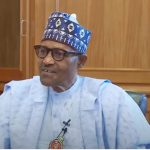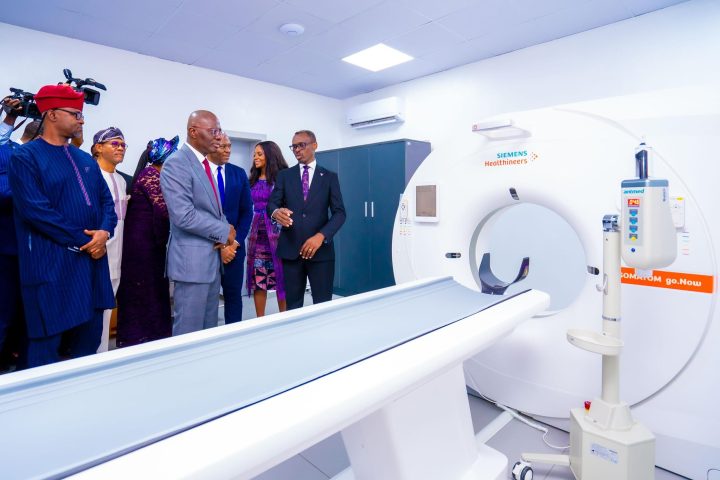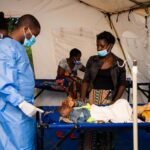The people of Uganda couldn’t hide their feelings as the government declared the end of the Ebola disease outbreak.
The Health Minister, Dr Jane Ruth Aceng Ocero, confirmed the end of the deadly virus after nearly four months after the first case was confirmed in the country’s central Mubende district on 20 September 2022.
The disease was caused by the Sudan Ebola virus variant.
The Health Minister said: “Uganda put a swift end to the Ebola outbreak by ramping up key control measures such as surveillance, contact tracing and infection, prevention and control.”
“While we expanded our efforts to put a strong response in place across the nine affected districts, the magic bullet has been our communities who understood the importance of doing whatever was needed to end the outbreak, and took action,” said Dr Aceng.
Prime Business Africa reports that the Sudan Ebola virus outbreak was the first of such to be witnessed by the country in a decade and is the fifth overall for this kind of disease.
A total of 164 cases were reported (142 confirmed and 22 probable), 55 confirmed deaths and 87 recovered patients.
The Health Minister further stated that more than 4000 people who came in contact with victims were followed up and their health was monitored for 21 days.
Meanwhile, the case-fatality ratio was 47 per cent as the last patient was released from care on 30th November when the 42-day countdown to the end of the outbreak began.
Commenting on the development, Director-General World Health Organisation (WHO), Tedros Adhanom Hebreyesus, applauded Ugandan health authorities for their strong political will and commitment to implementing accelerated public health actions.
People in the hot-spot communities of Mubende and Kasanda experienced restricted movements during the period.
“I congratulate Uganda for its robust and comprehensive response which has resulted in today’s victory over Ebola,” said WHO Director-General.
“Uganda has shown that Ebola can be defeated when the whole system works together, from having an alert system in place to finding and caring for people affected and their contacts to gaining the full participation of affected communities in the response. Lessons learned and the systems put in place for this outbreak will protect Ugandans and others in the years ahead.”
In addition, Dr Matshidiso Moeti, the WHO Regional Director for Africa, commended the people of Uganda for their effort in crushing the Ebola outbreak caused by the Sudan Ebola virus (one of six species of the Ebola virus) even when no therapeutics and vaccines have been approved yet. However, Uganda’s long experience in responding to epidemics allowed the country to rapidly strengthen critical areas of the response and overcome the lack of these key tools.
“With no vaccines and therapeutics, this was one of the most challenging Ebola outbreaks in the past five years, but Uganda stayed the course and continuously fine-tuned its response. Two months ago, it looked as if Ebola would cast a dark shadow over the country well into 2023, as the outbreak reached major cities such as Kampala and Jinja, but this win starts off the year on a note of great hope for Africa,” said Moeti, WHO Regional Director for Africa.
Soon after Uganda declared the Sudan Ebola virus outbreak, WHO worked with a range of partners, including vaccine developers, researchers, donors and the Ugandan health authorities to identify candidate therapeutics and vaccines for inclusion in trials. Three candidate vaccines were identified and over 5000 doses of these arrived in the country with the first batch on 8 December and the last two on 17 December. The speed of this collaboration marks a milestone in the global capacity to respond to rapidly evolving outbreaks and prevent them from becoming larger.
“While these candidate vaccines were not used during this outbreak, they remain the contribution of Uganda and partners to the fight against Ebola. The next time the Sudan Ebola virus strikes we can reignite the robust cooperation between developers, donors and health authorities and dispatch the candidate vaccines,” said Dr Yonas Tegegn Woldemariam, WHO Representative in Uganda.
WHO and partners supported Ugandan health authorities from the outset of the outbreak, deploying experts, providing training in contact tracing, testing and patient care, as well as building isolation and treatment centres and providing laboratory testing kits. Due to the joint efforts, the processing time for Ebola samples dropped from a few days to six hours.
The world health body helped to protect frontline healthcare workers by organising a steady supply of personal protective equipment. The Organisation provided nearly US$ 6.5 million to Uganda’s response and an additional US$ 3 million to support readiness in six neighbouring countries.
No more Ebola Cases but Surveillance continues
Although the outbreak in Uganda has been declared over, health authorities are maintaining surveillance and are ready to respond quickly to any eventuality. A follow-up programme has been put in place to support survivors. Neighbouring countries remain on alert and are encouraged to continue strengthening their capacities to detect and respond to infectious diseases that may arise at any given time.




![Relishing Ugba [Oil Bean] Delicacy](https://www.primebusiness.africa/wp-content/uploads/2025/06/Ugba-delicacy-720x480.jpg)












Follow Us